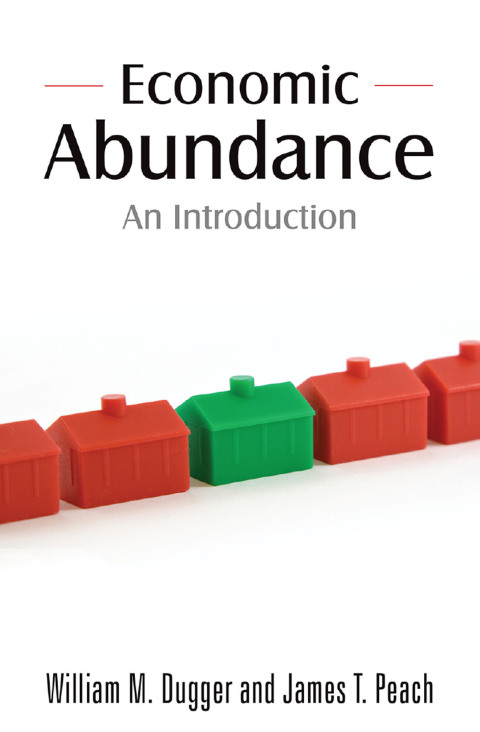Description
Efnisyfirlit
- Cover Page
- Half Title Page
- Title Page
- Copyright Page
- Contents
- List of Tables, Figures, and Box
- Preface
- Why We Wrote This Book
- What We Mean By Abundance
- Redefining Economics
- Distinctive Features of This Book
- Three Parts of the Book
- Dedication and Acknowledgments
- I Abundance A Practical Guide
- 1 An Intellectual History of Abundance
- Putting Abundance in Context
- Adam Smith Plus Malthus, Ricardo, and Mill
- Karl Marx
- Thorstein Veblen Plus Paul Sweezy, Joseph Schumpeter, and John R. Commons
- John Maynard Keynes, Plus Stuart Chase, Clarence Ayres, Walt Rostow, John Kenneth Galbraith, and Amartya Sen
- Three More Thinkers: R.H. Tawney, John A. Hobson, and Erich Zimmermann
- Differences Among These Abundance Economists
- Conclusion
- 2 The Meaning of Abundance
- Abundance and Technology
- Abundance and Equality
- Scarcity and Inequality
- The Importance of Policy
- The Importance of Abundance to the Study of Economics
- The Meaning of Equality
- The Institutional Approach to Policy
- Abundance Denied
- 3 Population and Abundance
- Population Is Not the Problem
- The Population Pessimists
- The Population Optimists
- Alternatives to Malthusian Pessimism and Smithian Optimism
- Demographic Uncertainty
- Some Reflections on the Fertility Rate: Is Population an Effect and the Economy a Cause?
- Conclusions
- A Digression on Measuring Demographic Rates
- 4 Resources and the Environment
- What Are Resources?
- Then What Is a Shortage?
- Limits to Growth
- Limiting Growth on Spaceship Earth?
- Global Warming
- Sustainable Development?
- The Environmental Kuznets Curve
- The Hollander Hypothesis
- II Inequality Why Abundance Escapes Us
- 5 Inequality
- Inequality: The Illness
- Inequality in the United States: One Potbelly and Two Tables
- Global Inequality
- 6 Classism
- Slavery
- Feudalism
- Capitalism and the Mixed Economy
- Minor Classes
- Farmers
- Management
- Bankers
- Classism and Unemployment
- 7 Nationalism
- The Direct and Indirect Costs of War and Military Expenditures
- The Costs of Limiting Worldwide Access to the Joint Stock of Knowledge
- World Output Is a Policy Choice
- 8 Sexism
- Sexism and the Space Age
- Stereotyping Women
- Violence and Abuse
- Job Discrimination
- Some Simple Arithmetic
- Who Keeps House and Raises the Children?
- 9 Racism
- Race Is a Social Fiction
- Racism Is Real and Costly
- The New Racism
- 10 A Summing Up
- Universal Employment: A Different Objective and Its Context
- Threads in the Tapestry of Social and Economic Inequality
- Faulty Social Valuation Processes: Emulation and Scapegoating
- Emulation
- Scapegoating
- The Neglect of Negative-Sum Games
- Conclusion: Empirical Challenges
- III Policies Promoting Abundance
- 11 Universal Employment
- Focus on Full Participation
- Getting the Price of Labor Right
- Universal Employment: A Policy to Achieve Abundance
- Suggestions for Stimulating the Economy
- Suggestions for Restraining Power
- Suggestions for Strengthening Political Resolve
- Suggestions for Facilitating Structural Change
- Suggestions for Globalizing Abundance
- Conclusion
- 12 Reflection and Conclusion
- Review of the Theme
- Review of the Chapters
- The Last Word: Veblen’s Game
- References
- Preface
- Chapter 1
- Chapter 2
- Chapter 3
- Chapter 4
- Chapter 5
- Chapter 6
- Chapter 7
- Chapter 8
- Chapter 9
- Chapter 10
- Chapter 11
- Chapter 12
- Index
- A
- B
- C
- D
- E
- F
- G
- H
- I
- J
- K
- L
- M
- N
- O
- P
- Q
- R
- S
- T
- U
- V
- W
- Z
- About the Authors






Reviews
There are no reviews yet.